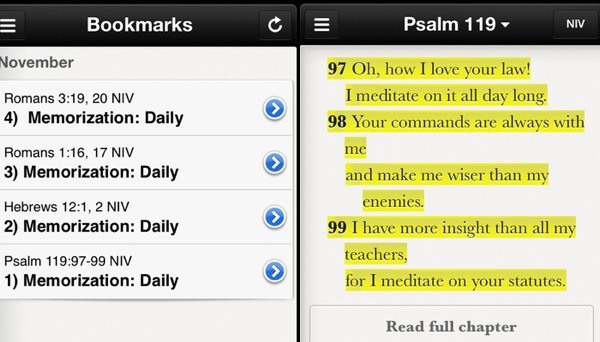Over the past year, I have had several blog posts and wanted to share with you 10 of my favorites. I could easily share the 10 most popular posts, but as Seth Godin said - “Best is rarely the same as popular.” Some of those posts were popular and others of them hardly got read. Regardless these are some posts that you should check out. 10. Outsourced Parenting. Parents can outsource any job they have; are you outsourcing the job of discipling your children?
9. Should Christians Celebrate Halloween? Is Halloween a pagan holiday or is there something redemptive hidden within this holiday?
8. God’s Calling is About More Than Some Day. Following God’s call is not a matter of figuring out what God wants you to do in the future, but is more a matter of figuring out where God has placed you right now and how he might use you in those places.
7.7 Practices that Make Church Weird. Church is weird. You may not realize it if you’ve been going your whole life, but it is.
6. Duck Dynasty Controversy. The blogosphere went crazy when the whole Duck Dynasty controversy took place. This post recorded some of my thoughts on the whole fiasco and what we could learn from it.
5. The Power of Habit. Habits either destroy us or they are incredibly helpful. What habits have you formed?
4. How to Memorize the Bible in only 5 Minutes a Day. Memorization is all about repetition, repetition, repetition. And given some discipline in 5 minutes every morning, you could be on your way to memorizing a ton of scripture this next year.
3. The Definition of Marriage Has Already Changed. The way Christians have defined marriage is no longer the way that culture defines marriage. This isn’t simply a matter of politics - it has changed regardless of what government decides. How will Christians respond?
2. Hey Macklemore! Teach Me About Preaching. Macklemore is one of the most popular preachers in our culture. He even preaches about taboo topics that aren’t supposed to be talked about. In his rapping and creativity, there is something significant we can learn about the preaching of God’s word.
1. Blue Jeans and God’s Calling
Eric makes blue jeans because God has called him to make blue jeans.
But here’s what’s interesting; when initially talking about all the things that he is passionate about in his business and the journey into it, he struggled connecting his faith and God’s calling to his small factory in Detroit. After all, he never heard God tell him to make blue jeans.






 Memorizing scripture can be a daunting and intimidating task. I have oftentimes made well-intentioned efforts to memorize both long and short passages of scriptures, knowing that there is something significant about the discipline of memorizing bible verses. Recently I was introduced to a system for memorizing scripture that still requires discipline, but also will set you up to make scripture memorization a part of your daily devotional life and doesn't take much more than five minutes a day.
Memorizing scripture can be a daunting and intimidating task. I have oftentimes made well-intentioned efforts to memorize both long and short passages of scriptures, knowing that there is something significant about the discipline of memorizing bible verses. Recently I was introduced to a system for memorizing scripture that still requires discipline, but also will set you up to make scripture memorization a part of your daily devotional life and doesn't take much more than five minutes a day.




 [This is an excerpt from a
[This is an excerpt from a 